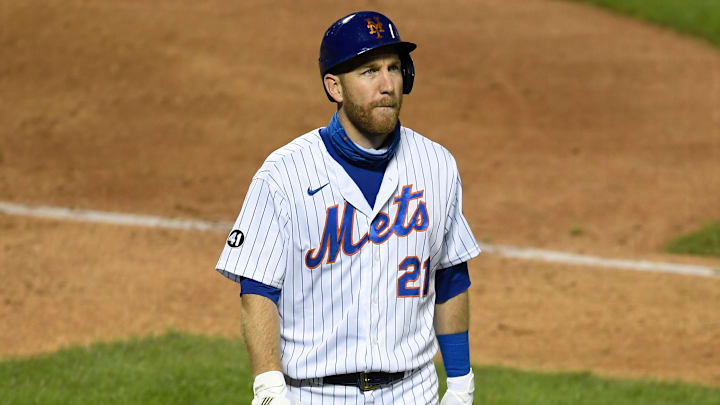Last week, we took a look at a lesson the New York Mets can learn from the 2021 trade deadline. This year, we go back a little further. Remember the craziness of 2020? That’s our stop.
Everything about the 2020 MLB season was incomplete. The trade deadline took place after only a month’s worth of games because there was only another month left to play after it. Just about everyone was still in the playoff race. This included an incredibly flawed Mets team that decided they were buyers.
From the 2020 trade deadline, there is a lesson to be learned.
The Mets shouldn’t make trades for the sake of adding new faces
If you’ve forgotten what the Mets did at the 2020 trade deadline, let’s have a refresher. This doesn’t include Ariel Jurado or Billy Hamilton whose presence on the Mets came a little before the end of August deadline to make moves. They still fit in the theme of Brodie Van Wagenen making moves because someone was watching.
The three players the Mets added in 2020 just ahead of the deadline were relief pitcher Miguel Castro, catcher Robinson Chirinos, and infielder Todd Frazier.
Castro actually turned out to be a really good addition. The Mets used him a ton in 2021 and eventually flipped him for a lefty reliever before the 2022 season, Joely Rodriguez. As poorly as Rodriguez has pitched, it’s not Castro’s fault.
Adding him, however, was hardly enough to fix a depleted Mets pitching staff that could have used a starter much more. Seth Lugo began to make appearances as a starter regularly for the 2020 Mets. Rick Porcello had a 5.64 ERA and Michael Wacha’s was at 6.62. Far worse, Steven Matz and Robert Gsellman were at 9.68 and 9.64 respectively.
Combined, all four of them had a 2-14 record.
Bringing in Chirinos was a lesser move to give them some catching depth in the absence of Tomas Nido so how critical can we be about that? Then there’s Frazier whose purpose was to improve third base offensively and defensively. He didn’t. He was the same crumbling veteran he was while with the Texas Rangers earlier in the year.
All of the Mets trades made in mid-2020 felt more like trying to reach a quota than correcting what they had. The trade deadline can be imperfect. This performance by the front office certainly was. Every move they made was a minor one when they team needed a much bigger haul to have any shot at the playoffs.
So, in 2022 when Billy Eppler is mulling over the idea of making some trades, he should look back two seasons and understand some trades, even if they aren’t so costly, are better off not completing. Focus your energy on what the team needs most.
